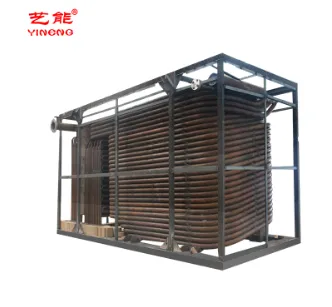steam boiler for textile industry factory
The Role of Steam Boilers in the Textile Industry
In the textile industry, the production of fabrics involves a range of processes that require precise temperature control, ample steam, and consistent energy supply. Among the various technologies employed to achieve these, steam boilers are fundamental components that play a critical role in manufacturing processes. This article explores the significance of steam boilers in the textile industry, their types, and their impact on efficiency and sustainability.
Understanding Steam Boilers
A steam boiler is a device that converts water into steam through the application of heat. In the textile sector, this steam serves multiple purposes, including fabric treatment, dyeing, and even the powering of various machinery. The role of a steam boiler is multifaceted. It generates the high-pressure steam required for significant operations, driving different processes that require heat energy. Given the energy-intensive nature of textile production, choosing the right boiler is crucial for maximizing productivity and minimizing operational costs.
Types of Steam Boilers
Several types of steam boilers are commonly used in the textile industry
1. Fire-Tube Boilers These are among the most common types of steam boilers, functioning by passing hot gases through tubes immersed in water. They are generally favored for their simplicity and ease of operation. Fire-tube boilers are efficient for smaller establishments.
2. Water-Tube Boilers In contrast to fire-tube boilers, water-tube boilers circulate water through tubes that are heated externally by combustion gases. They are known for their high efficiency and ability to produce steam at much higher pressures, making them suitable for large textile plants.
3. Electric Boilers With the rising focus on sustainability, electric boilers have gained attention. They directly convert electrical energy into steam, offering an environmentally friendly solution as they produce no direct emissions. However, their operational costs are higher and depend on the local cost of electricity.
steam boiler for textile industry factory

4. Biomass Boilers These boilers utilize organic materials, such as wood pellets or agricultural waste, as fuel. They are becoming a popular choice in eco-conscious textile factories aiming to reduce their carbon footprint.
Efficiency and Sustainability
Efficiency is crucial in any industrial setting, and the textile industry is no exception. Modern steam boilers are designed to operate with high efficiency, minimize energy consumption, and lower greenhouse gas emissions. Installing advanced boilers can lead to significant savings on fuel costs and reduce overall operational expenses.
Moreover, the textile industry has been under increasing pressure to adopt sustainable practices. Many manufacturers are now integrating renewable energy sources and energy-efficient technologies in their operations. For example, utilizing biomass boilers aligns well with sustainability goals, as they recycle waste materials and reduce reliance on fossil fuels.
Challenges and Considerations
While steam boilers are invaluable in the textile industry, they come with challenges that need to be addressed. Regular maintenance is crucial for ensuring safety and efficiency. The presence of water impurities can lead to boiler scaling, which decreases efficiency. Additionally, regulations surrounding emissions are evolving, requiring manufacturers to stay updated and compliant.
Choosing the right boiler also involves considering factors like the scale of operations, budget constraints, and environmental goals. Conducting a thorough assessment allows textile manufacturers to select boilers that align best with their operational needs and sustainability targets.
Conclusion
Steam boilers are indispensable to the textile industry, providing the heat and energy required for various production processes. Their selection and operation pale in comparison to the benefits they offer in improving efficiency and supporting sustainability initiatives. As the industry continues to evolve, embracing technological advancements and eco-friendly practices will shape the future of textile manufacturing. The strategic use of steam boilers will undoubtedly remain at the core of this evolution, driving innovation while reducing environmental impact.
-
Industrial Electric Steam Boiler Manufacturers | Efficient SolutionsNewsAug.08,2025
-
Industrial Electric Steam Boilers | Top Manufacturers & SuppliersNewsAug.07,2025
-
Leading Electric Steam Boiler Manufacturers for IndustryNewsAug.06,2025
-
Top Electric Steam Boiler Manufacturers | AI EfficiencyNewsAug.04,2025
-
Efficient Thermal Oil Boilers with AI Optimization | Superior PerformanceNewsAug.03,2025
-
Custom Steam Boilers Manufacturer | AI-Enhanced EfficiencyNewsJul.31,2025

